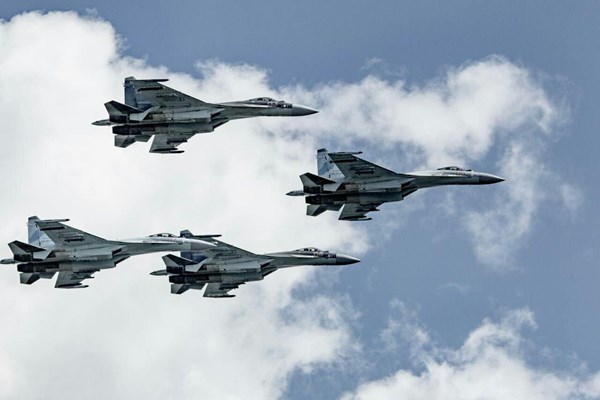The purchase of Su-35 fighter jets has been agreed upon, according to Iranian authorities. According to the Iranian state news agency IRNA, the contract was inked after the UN arms embargo that forbade Iran from purchasing conventional weapons expired.
Iran said in a message to the UN that Russia had expressed a willingness to supply the planes and that the Su-35 airplanes were “technically acceptable.”
Iran’s fighter jet fleet is out of date and primarily consists of Soviet MiG and Su aircraft. There are also a few Chinese and vintage American aircraft that Iran acquired before to the 1979 Islamic Revolution. Sanctions also made it difficult to buy replacement parts for them.
According to intelligence sources monitoring military agreements between Moscow and Tehran, the Israeli TV station i24news announced in December that Russia would soon provide Iran with a squadron of fighter jets.
They would most likely be 24 Su-35 fighter jets, which were initially destined for Egypt, the broadcaster claims. Iranian pilots have already received training on these planes, according to intelligence reports. The broadcaster further noted that Iran was due to get air defense equipment from Moscow. Iran was expected to transfer 300 Shahed-136 kamikaze drones to Russia in addition to the 1700 drones previously sent.
The UN-imposed limitations on the armaments trade will end, the Iranian Foreign Ministry stated in October 2020. As long as it follows its defense needs, Iran can now legally purchase weapons and specialized equipment. In order to receive the lifting of sanctions imposed by the United States and the European Union, including the gradual lifting of the arms embargo, Tehran had to comply with the Joint Comprehensive Plan of Action (JCPOA), which was signed in 2015 by Iran, the United States, Russia, China, Germany, France, and the United Kingdom.
Iran began phasing out its commitments after Washington unilaterally withdrew from the JCPOA in May 2018 and began tightening sanctions on Tehran. Other parties to the agreement, including Germany, France, and Britain, supported the preservation of the agreement with Iran. The UN Security Council in August 2020 rejected the United States resolution to extend the arms embargo against Iran, after majority of Security Council members abstained from voting.





